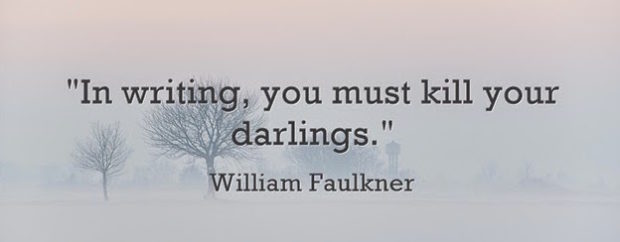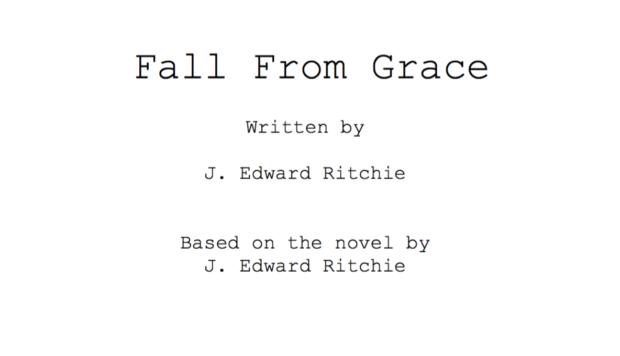 Over the years, I’ve pitched on many projects to adapt other writers’ material into a screenplay. Whether tackling a novel, comic, or video game, my creative distance from the source allowed me to make unbiased story and character decisions. Adapting my own work, however, proved to be an entirely different beast.
Over the years, I’ve pitched on many projects to adapt other writers’ material into a screenplay. Whether tackling a novel, comic, or video game, my creative distance from the source allowed me to make unbiased story and character decisions. Adapting my own work, however, proved to be an entirely different beast.
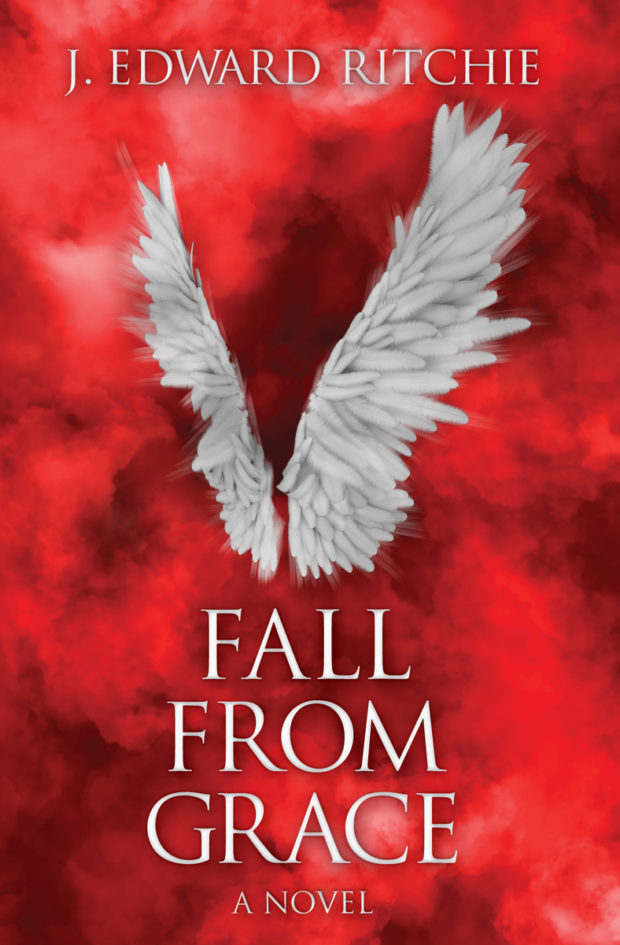 Fall From Grace had a winding journey from screenplay to novel then back to screenplay. I’ve lived within this world of angels and demons for well over ten years, and there was no way I could pass the task of adaptation to another scribe. Writing the novel was a personal undertaking with no one to answer to but my own creative muse. With a screenplay, there are other people involved in every decision, especially as you get closer to securing a deal. How did I navigate those diverse (sometimes contradictory) voices without turning Fall From Graceinto a mutant mess? I preserved the story’s core essence, restructured the narrative pacing for the screenplay format, and was always open to compromise. That balancing act was difficult and frustrating but also an immensely rewarding learning experience.
Fall From Grace had a winding journey from screenplay to novel then back to screenplay. I’ve lived within this world of angels and demons for well over ten years, and there was no way I could pass the task of adaptation to another scribe. Writing the novel was a personal undertaking with no one to answer to but my own creative muse. With a screenplay, there are other people involved in every decision, especially as you get closer to securing a deal. How did I navigate those diverse (sometimes contradictory) voices without turning Fall From Graceinto a mutant mess? I preserved the story’s core essence, restructured the narrative pacing for the screenplay format, and was always open to compromise. That balancing act was difficult and frustrating but also an immensely rewarding learning experience.
SPOILERS for Fall From Grace
Know Your Story
The first step of any adaptation is to distill the story down to its pure essence. Fall From Graceis a tale about two brothers who find themselves on opposite sides of a war after their father reveals his new children. It is about family. Whatever changes I’d need to make, that essence had to remain true as the screenplay’s foundation. If abandoned, the entire story would collapse upon tweaking its finer elements. To reinforce that foundation, two other core aspects had to be preserved: the main characters and key plot beats.
Main characters, often a hero and villain, have to be given the most respect when adapting their traits and arcs. In Fall From Grace, Michael is a religious leader of dauntless faith who trusts his father without question. His brother, Satanail, is a more secular leader beloved by the people and believes that angels are without equal in Creation. Pope and President. The brothers’ dichotomous views place them in direct conflict and divide Heaven. To drastically alter either character would’ve had adverse consequences on both the thematic integrity and how the story unfolds.
I wrote the Fall From Gracenovel using the time-honored three-act structure, which made breaking down the plot for a screenplay much easier. Act 1 establishes the characters/world, introduces the idea of Mankind, and then ends with Heaven split when Satanail rejects his father’s (and Michael’s) call to serve Mankind. Act 2 escalates the conflict until a midpoint tragedy turns Satanail’s rebellion into a full-on war. The end of Act 2 or “all is lost moment” sees Michael and the Host of Heaven suffer a crushing defeat before hope is resurrected in the final act. These broad strokes would act as a support system throughout the adaptation process to prevent losing sight of the novel’s benchmark moments. Coupled with upholding the story’s essence and main characters, I was ready to start the initial round of cuts.
The Chopping Block
Adapting a 400+ page novel into a 110-page screenplay meant that a good deal of content had to go. Some cuts were immediately apparent, as not everything that worked in the novel would translate well on screen. No matter how much I liked certain moments, moments which could even have worked as an isolated scene, I had to ask myself: do they belong? Here are a few examples of sweeping cuts I made:
- The Behemoth and Leviathan: The primordial beasts made for epic kaiju-esque chapters in the novel but weren’t practical for the film. Budget aside, Fall From Graceis not Pacific Rim, and unleashing giant monsters across Heaven would’ve been a visual distraction to the point of seeming like something out of a different film. Easy decision.
- Every cut creates ripples in the story. By removing the beasts I was able to excise a major character and location: Cassiel and the Nest. From a world-building perspective, I’ve always loved how the Cassiel and the Cherubim used the Nest facility to terraform Heaven. But since Cassiel’s death and the Nest’s destruction are directly tied to the beasts, they had to go. Removing that death meant another important character would have to die to maintain the sense of mortality and loss that the Host experiences. Sorry, Uriel.
- Sammael, Lilith, and the Forgotten: This was a much harder cut. Sammael, essentially the original Dr. Frankenstein, is deliciously twisted in the novel, but there simply wasn’t enough real estate in the script to do him justice. Trying to wedge in his story only diluted the real threat (Satanail) and diverted focus from Heaven’s war. However, removing Sammael meant that Satanail wouldn’t be imprisoned, tortured, and exposed to aspects of evil that evolved outside of angelic society. His descent into madness is a very internal journey in the novel, so it had to be reworked as more external. I achieved this through the escalation of war: both sides believe they are in the right and take increasingly extreme action until Satanail’s altruistic beliefs are buried beneath his jealousy and rage. He created the war but could not control it.
Those sizable cuts, among others, began to focus the story down to a more reasonable size, but removing material wasn’t enough to make a successful screenplay. A more finessed approached was needed.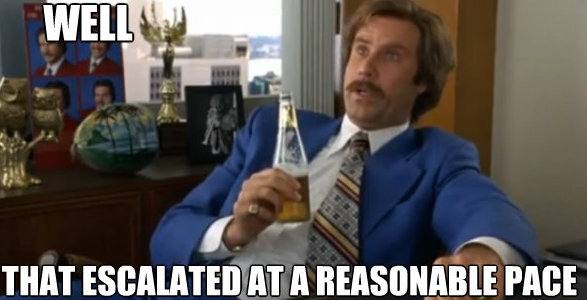
Keep the Pace
Writing Fall From Graceas a novel gave me the freedom to bounce around and introduce characters/environments at my leisure. In a screenplay, every page has to be tight to keep the reader engaged, especiallyin the first act. I had less than 30 pages to establish Michael/Satanail’s relationship, the world and peace of Heaven, supporting characters, and then turn it all upside down. As in the novel, I began with a race across Heaven to quickly show multiple locations, but I could not cut from Michael and Satanail afterwards. They needed to dominate the story, yet I also needed to bring in Gabriel, Uriel, Raphael, and Azazel. Thus, I found places within those early pages to bring in characters without deviating from the central story of Michael and Satanail. For example, I introduced Gabriel after the race in a bar within Araboth City instead of having Michael fly to an entirely different region of Heaven to visit him. Same end result with no jarring interruption of pace.
Prose in screenwriting is all about economy, and you have to find ways to use that to your advantage. A screenplay can only express what the audience will see or hear, so all of Michael and Satanail’s internal thoughts were out. Rich metaphors and description were out. Readers often skim screenplays, so you have to capture their attention immediately and hold it. Don’t confuse them, either. Anything that could cause a reader to stop and question the story had to be explicitly clear. Why do angels have different amounts of wings? Is there any diversity in their appearance? What is the geographical layout of Araboth City? All of these questions needed to be addressed in simple, swift fashion. Through careful use of capitalization, underline, and placing certain descriptions on their own lines, I was able to guide the reader past any potential hiccups.
In a perfect world, every reader could sit down without distractions and read a beautifully dense and detailed screenplay. That’s just not reality. Don’t shoot yourself in the foot by trying to replicate your novel’s language in a screenplay. Know the format and how to utilize its limitations.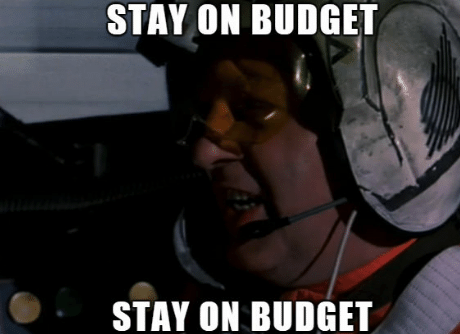
Stay on Budget
Adapting Fall From Gracewas a unique assignment because, for the first time, I had a director attached with a specific budget in mind. I knew how many action scenes we could afford, and I had to write with that in mind. When trying to sell the script to investors, we didn’t want them questioning whether the script could actually be made for the proposed budget. That meant balancing creativity and business, a new hurdle for me as a writer, but a necessary one.
Budget first came into play with the midpoint tragedy. In the novel, the Observatory floating above Araboth is destroyed, glass and debris kills thousands of innocent angels, and the plummeting wreckage threatens to obliterate the city. The act of terror makes all-out war between Michael and Satanail unavoidable. I decided to alter the specifics of the midpoint because 1) we didn’t need a major action scene in the city, since the final act would take place there, 2) it was just too damn expensive, and 3) the imagery could evoke other films and seem derivative. Instead, I restructured a similar gut-wrenching loss for Heaven: Satanail burning down the refugee rainforest and the Tree of Life. The overhauled tragedy had the same effect upon the characters and kept the story moving in the right direction.
Another aspect of writing to a budget is getting the most from your locations. I could introduce a new location on a whim in the novel, but you don’t want a one-off location in a screenplay. If a location was only featured in one scene, it had to be cut or repurposed for multiple uses. Satanail’s residence was important to me, so I made sure it factored into the story in more ways. Think about the production: if you have any budget limitations, you’re not going to construct an elaborate set for one scene. Another solution was to relocate scenes without (hopefully) changing their purpose. And sometimes, a location just wasn’t necessary. Uriel’s volcano Forge would’ve been a visual stunner, but ultimately it didn’t service the story enough to justify the potential cost.
Compromise is Your Friend
When adapting alongside producers and directors, you will butt heads. To be successful (and get hired again) you need to embrace compromise. Pick your battles wisely. When something is worth fighting for, be sure to clearly express why certain scenes or dialogue are important to you. Likewise, listen to the suggestions of others with an open mind––never reject a note outright without a respectful discussion. Often, these people are very experienced in the movie industry and have a good mind for what will work on screen or not.
One proposed change to Fall From Gracewas renaming Satanail to Lucifer until war is declared and he rebrands himself as Satan. Changing a character’s name may seem like a big deal, but I conceded because of the general public’s knowledge of the name Lucifer versus Satanail. Also, having Lucifer become Satan audibly sounds more powerful than Satanail becoming Satan. Since the idea of other angels choosing demonic names was jettisoned (such as Azazel becoming Lucifer), I saw no problems. Would I have preferred that he remain Satanail? Probably, but it wasn’t an issue I felt strongly enough about to put my foot down.
Another compromise was having both Satanail and Michael historically receive the Word of the Creator. That’s a stark change from the novel where only Michael receives the Word, and I was initially quite hesitant. However, without having the time to fully explain Heaven’s society and Michael/Satanail’s titles, this decision generated stronger drama. If anything, Satanail becomes more sympathetic and his jealousy more relatable when only Michael is called to learn about Mankind. Satanail is ignored by his father without reason or precedent.
Did I ever hold my ground? Of course. There were extensive talks about the ending, specifically the final scene in Hell and whether or not it was needed. I was adamant that the reader/audience needed to see that Satan and his demons had been banished from Heaven. Punished. It’s a short scene, a little over a page, but it provides necessary closure. I also shot down suggestions of having a Garden of Eden and snake final scene, because I’ve always approached the Fall From Graceworld as one that could be enjoyed by people of any religion or no faith at all.
Compromise may seem negative at first, but it also offers something very exciting: new scenes! I got a chance to rejuvenate my passion for Fall From Graceby exploring new relationships and crafting different action scenes. It was almost like playing around in an alternate universe version of the story. Not better or worse, just different.

An author may not always be the best person to adapt his or her own material. But if you’re open to the process, if you can be a team player and separate yourself from what came before, you’ll be in a unique position to bring authenticity to the new version of your creation. Fall From Gracethe screenplay is not Fall From Gracethe novel. Yet if I’ve done my job correctly, both take advantage of their mediums to present the same heart and soul of the epic story.
Thanks for reading! Feel free to comment with any additional questions about the adaptation process.

